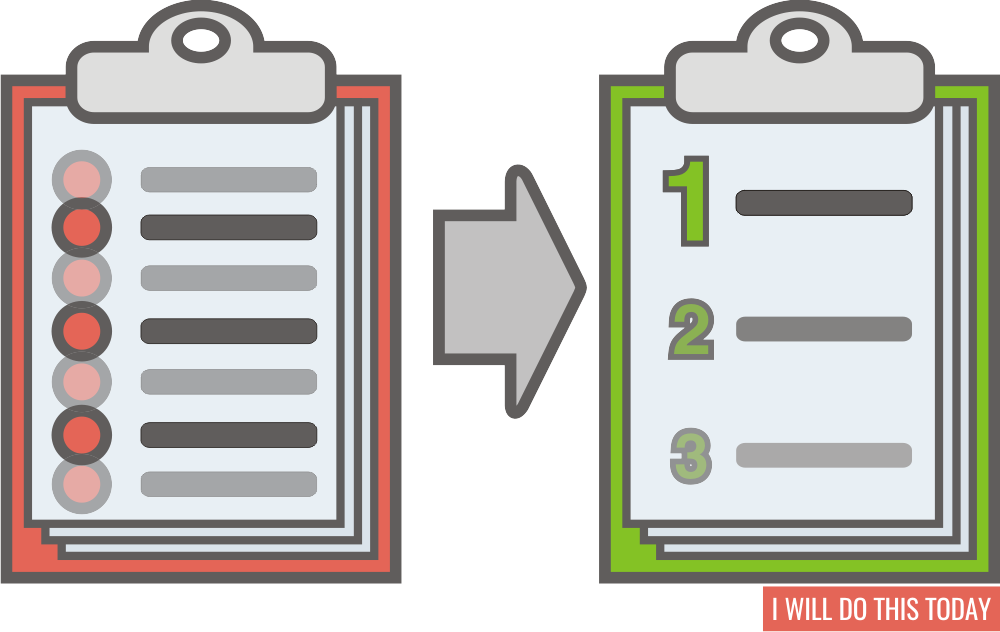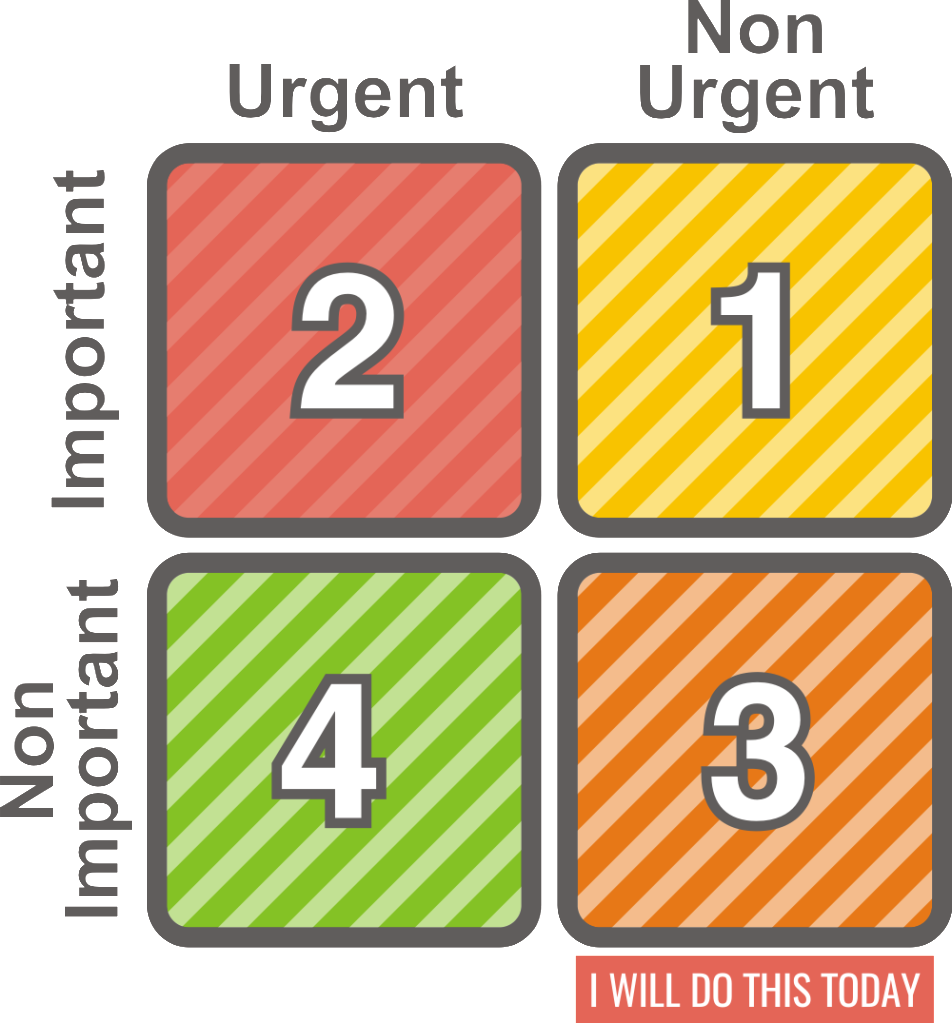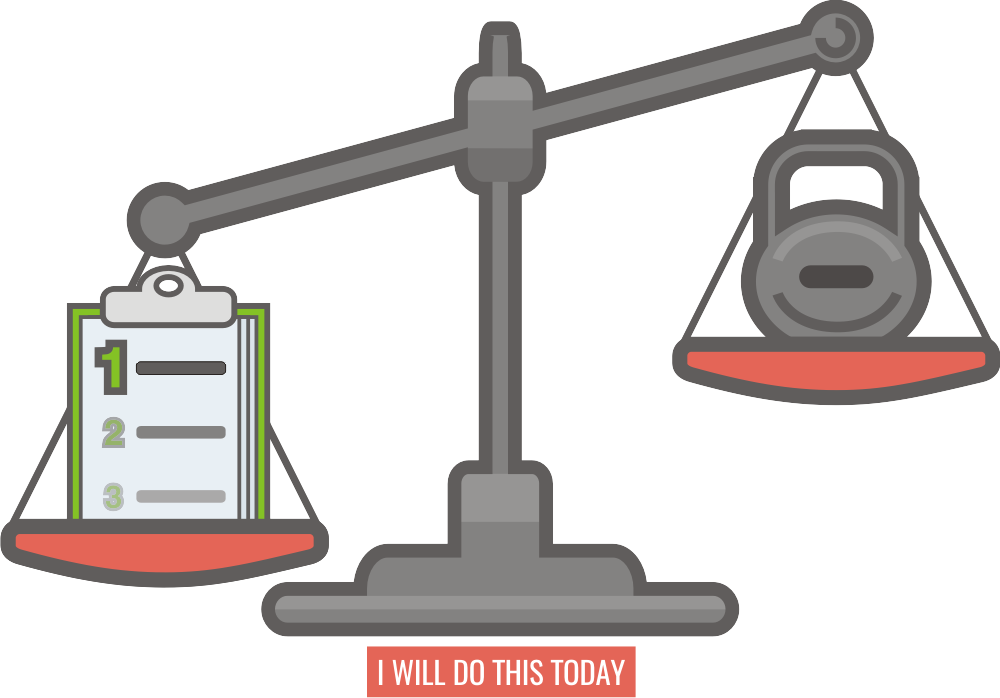Have you ever felt like you are spending your time doing repetitive tasks over and over again, but at the same time there is no time left to work on what’s truly important?
 Are you drained of your energy every single day without being able to identify definite growth or moving forward in your career or towards achieving your life goals? Have you ever felt what McKeown calls the “stress of everything-is-important-so-everything-has-to-be-done-but-I-can’t-do-it-all”?
Are you drained of your energy every single day without being able to identify definite growth or moving forward in your career or towards achieving your life goals? Have you ever felt what McKeown calls the “stress of everything-is-important-so-everything-has-to-be-done-but-I-can’t-do-it-all”?
Don’t worry – most of us have been there.
Why?
Because at the time we didn’t consider distinguishing what was important from what was just urgent.
Sometimes we even do things that are neither one or the other.
So how do we take care of this problem? By prioritizing.
What Is Prioritization?
 You will need to discriminate your important tasks from your urgent tasks. This is what prioritization is.
You will need to discriminate your important tasks from your urgent tasks. This is what prioritization is.
“If you don’t prioritize your life, someone else will.”
Greg McKeown
So how do you do that?
Probably one of the most effective ways is to use the so-called Eisenhower Matrix.
As McKay points out the matrix consists of a square divided into four boxes or quadrants, labeled:
1) Urgent/Important
These are tasks that require our immediate attention and also work towards fulfilling our long-term goals and missions in life.
For example: term paper deadline, business proposal submission, health emergency.
Schedule those tasks in your calendar so that you are ahead in the game.
2) Not Urgent/Important
 According to McKay, these are the activities that don’t have a pressing deadline, but nonetheless help you achieve your important personal, school, and work goals as well as help you fulfill your overall mission.
According to McKay, these are the activities that don’t have a pressing deadline, but nonetheless help you achieve your important personal, school, and work goals as well as help you fulfill your overall mission.
Planning is crucial here. You should spend most of your time in this quadrant as those activities will provide you with lasting happiness, fulfillment, and success.
Examples include: working on your business, studying, learning new skills, spending time with your family, etc.
3) Urgent/Not Important
These are attention-seeking activities, but they don’t help you move forward and towards achieving your goals. As McKay points out, these are interruptions from other people, who want your help to achieve their important goals.
Thinking of your past week – how many times were you in such a situation? These tasks can definitely feel important – after all you are helping others in one way or another, but what is important is that you dedicate time to develop yourself first. Spending too much of your time here is a recipe for frustration.
Examples: phone calls, most emails, texts, people coming to ask for a favor, etc.
4) Not Urgent/Not Important
Those are distractions – they are neither helping you get closer to your goal nor are you helping someone else.
The reality is, however, that most of us spend a chunk of our time here. Watching YouTube or TV, playing games, shopping sprees online… You don’t realize it but at some point you take a look at the time and your day is gone.
Is result, after few of these sessions, you start feeling without purpose.
Don’t try to eliminate these from your life. Everyone should have a healthy amount of stress-releasing time doing something else. But don’t spend more than 5% of your time here.
Why Is It Important To Prioritize?
 As Forleo points out many things in our lives can feel urgent – checking email, answering calls – things that demand our attention now. The problem, however, is that things that are urgent relate to accomplishing other people’s goals – not our own.
As Forleo points out many things in our lives can feel urgent – checking email, answering calls – things that demand our attention now. The problem, however, is that things that are urgent relate to accomplishing other people’s goals – not our own.
Important things are different. There are no ‘alarms’ around them, they are sitting on the side – waiting for you. Those relate to our goals and dreams, not other people’s. They are also easy to ignore.
It is important to focus on what is important first. This is to help you achieve your ultimate goal.
The urgent stuff will always be done, because it has to by default.
What Are The Best Tips To Help You Prioritize?
- Create and maintain a master list of everything you need to accomplish in the future.
This will help you capture ideas as they come as you can just note them down and continue with your work. Then, when you are finally finished, you can actually come back to the list.
- Avoid the mistake of saying “yes” when you know the answer should be “no”.
 Again, people will always give you more and more work and take advantage of your time. Know when to say “yes” and when to decline. There is nothing more important to you than what you want to achieve and the only way to do so is to work towards it. If you spend the majority of your time on something else… well, you will never achieve your goal. It is logical, but yet so elusive.
Again, people will always give you more and more work and take advantage of your time. Know when to say “yes” and when to decline. There is nothing more important to you than what you want to achieve and the only way to do so is to work towards it. If you spend the majority of your time on something else… well, you will never achieve your goal. It is logical, but yet so elusive.
- Avoid working for or with people who don’t respect your priorities.
This brings me to the next point. You need to let people know that although their objectives are urgent and important to them, you have to take care of something else first. Do not overcommit. Know your schedule and appreciate your time. Let people know when you will be able to work on their tasks and give them an approximate date of completion that is taking into account your work as a priority.
If they don’t respect your time, then you should avoid working with them.
- Be realistic with time allocation
Often times you will find yourself in a position of having too many important tasks. In your attempt to work on all of them, you will develop a tendency to allocate shorter-than-necessary amounts of time to each important task.
Always be realistic and allow time for breaks – after all you would need to maintain focus throughout the day and not feel burned-out after two hours.
- Ignore the urgent tasks until your important work is done for the day.
Every day you should aim to have a clear idea of what your important tasks are for the day. Work on those first and after you are done start working on the urgent ones.
References
2. Greg McKeown – How to Prioritize When Everything Is a Priority
3. Greg McKeown – If You Don’t Prioritize Your Life, Someone Else Will
4. Robert Sher – Midsize Companies Must Prioritize Ruthlessly
5. Ed Batista – The Most Productive People Know Who to Ignore
6. Boris Groysberg and Robin Abrahams – Manage Your Work, Manage Your Life
7. Lauren Perkins – How to Prioritize When Everything is a Priority: 5 Tips
8. Marie Forleo – How To Prioritize: One Tip That Does It All
9. Brian Tracy – 4 Must Know To-Do Lists To Prioritize Tasks